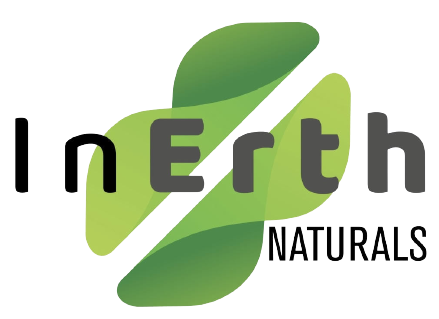Oxidative stress refers to an imbalance between the production of free radicals and the ability of the body to neutralize or detoxify their harmful effects through antioxidants. Free radicals are highly reactive molecules containing oxygen that can damage cells and tissues in the body.
Here’s how oxidative stress affects the body:
- Cellular Damage: Free radicals can react with and damage important cellular components such as DNA, proteins, and lipids. This damage can disrupt normal cellular functions and even lead to cell death.
- Inflammation: Oxidative stress can trigger inflammation responses in the body. Chronic inflammation, in turn, is associated with a wide range of diseases including cardiovascular diseases, diabetes, neurodegenerative diseases, and cancer.
- Aging: There is a theory that oxidative stress contributes to the aging process. Over time, accumulated damage from free radicals can impair cellular function and contribute to the decline in organ function that occurs with aging.
- Neurological Effects: Oxidative stress has been implicated in neurodegenerative diseases such as Alzheimer’s disease, Parkinson’s disease, and amyotrophic lateral sclerosis (ALS). Neurons are particularly vulnerable to oxidative damage due to their high metabolic activity and relatively low antioxidant defenses.
- Cardiovascular Effects: Oxidative stress can damage blood vessels and contribute to the development of atherosclerosis (hardening of the arteries). It also plays a role in the progression of conditions like hypertension and heart failure.
- Cancer: While oxidative stress itself may not directly cause cancer, it can contribute to the genomic instability and mutations that are characteristic of cancer cells. Moreover, oxidative stress can promote inflammation and cell proliferation, which are factors involved in cancer development.
Glutathione stands as a formidable solution to oxidative stress due to its pivotal role as a powerful antioxidant within the body. Acting directly to neutralize free radicals by donating electrons, glutathione helps prevent cellular damage and supports the health of vital cellular components such as DNA, proteins, and lipids. Beyond its direct antioxidant capabilities, glutathione plays a crucial role in recycling and replenishing other antioxidants like vitamins C and E, thereby enhancing the overall antioxidant defense system. Its involvement in detoxification processes further reinforces its importance, as it helps eliminate harmful toxins and pollutants that can exacerbate oxidative stress. By maintaining mitochondrial function and supporting immune responses, glutathione contributes to the preservation of cellular integrity and the reduction of inflammation. Through these mechanisms, glutathione not only mitigates oxidative stress but also helps safeguard against a range of chronic diseases associated with oxidative damage, making it indispensable for maintaining overall health and well-being.
Glutathione is indeed a powerful antioxidant and plays a crucial role in combating oxidative stress in the body. Here’s how glutathione helps prevent oxidative stress:
- Neutralizing Free Radicals: Glutathione acts directly to neutralize free radicals by donating an electron, thereby stabilizing them and preventing them from causing damage to cells and tissues.
- Regenerating Other Antioxidants: Glutathione can regenerate other antioxidants such as vitamin C and vitamin E after they have neutralized free radicals. This recycling process enhances the overall antioxidant defense system in the body.
- Detoxification: Glutathione is involved in the detoxification of harmful substances, including pollutants, toxins, and drugs. It helps to neutralize and eliminate these substances from the body, reducing their potential to induce oxidative stress.
- Supporting Immune Function: Glutathione plays a role in supporting the immune system by maintaining the function of immune cells. This is important for defending against infections and reducing inflammation, which can be triggered by oxidative stress.
- Protecting Mitochondrial Function: Mitochondria are the energy-producing organelles within cells and are particularly susceptible to oxidative damage. Glutathione helps protect mitochondrial function by reducing oxidative stress within these organelles.
- Maintaining Cellular Redox Balance: Glutathione helps to maintain the proper balance of oxidation and reduction reactions within cells, known as redox balance. This balance is crucial for cellular health and function.
Factors Influencing Glutathione Levels
- Nutrition: Consuming foods rich in sulfur-containing amino acids (such as cysteine, glutamine, and glycine) and antioxidants (such as fruits and vegetables) can support glutathione synthesis.
- Exercise: Regular physical activity can increase glutathione levels, which may help protect against exercise-induced oxidative stress.
- Stress Management: Chronic stress can deplete glutathione levels. Practices such as meditation and relaxation techniques may help to mitigate this effect.
- Supplementation: In some cases, supplementation with glutathione precursors (such as N-acetylcysteine, alpha-lipoic acid, or glutathione itself) may be recommended to support antioxidant defenses, although the efficacy of oral glutathione supplementation is debated due to its poor absorption.
Why Choose InErth Liposomal Glutathione?
There are many glutathione supplements on the market today, but few offer the value and efficacy of InErth products. InErth Liposomal Glutathione is highly bioavailable and formulated to absorb quickly.
Purchase online today without a prescription and get started immediately.

